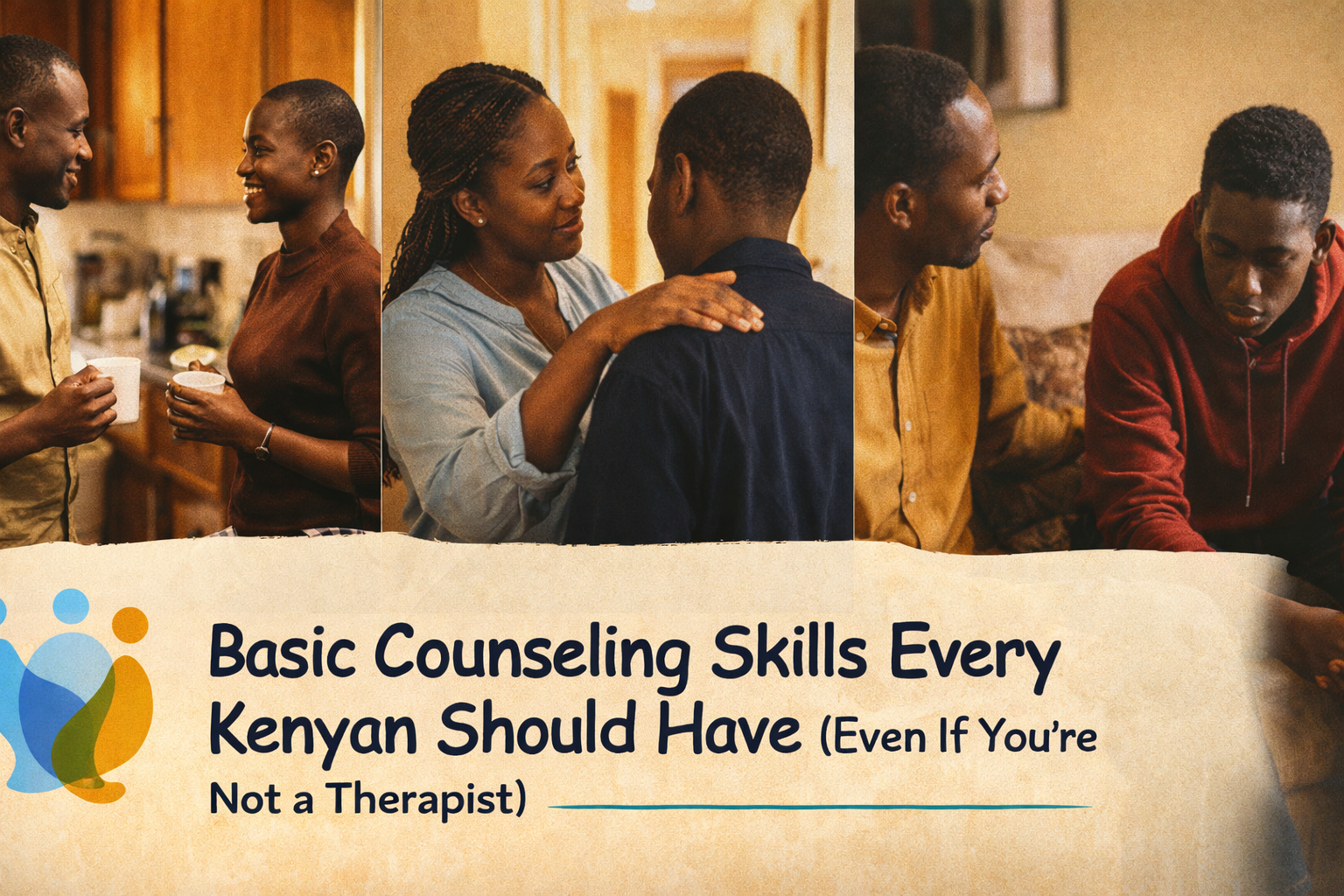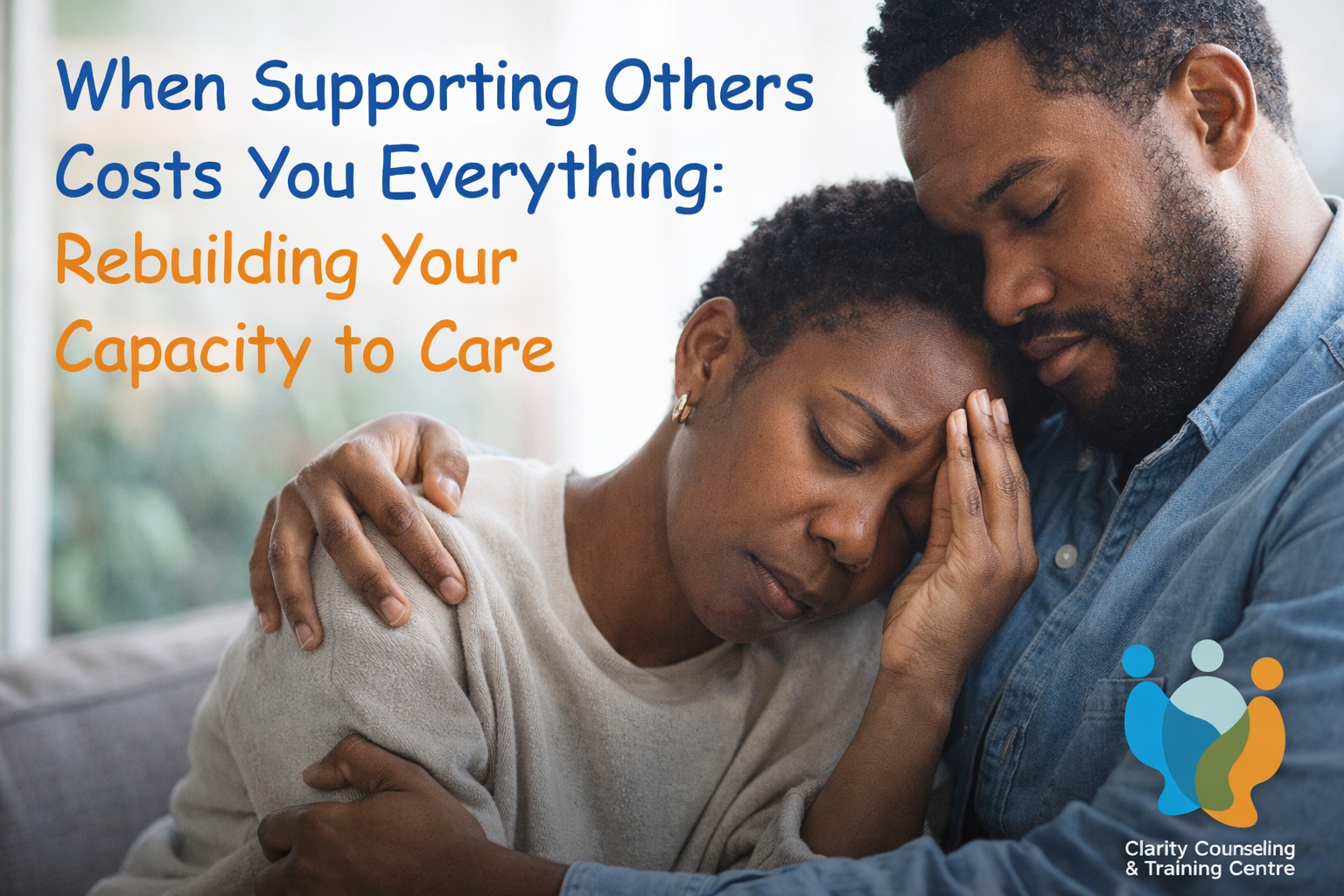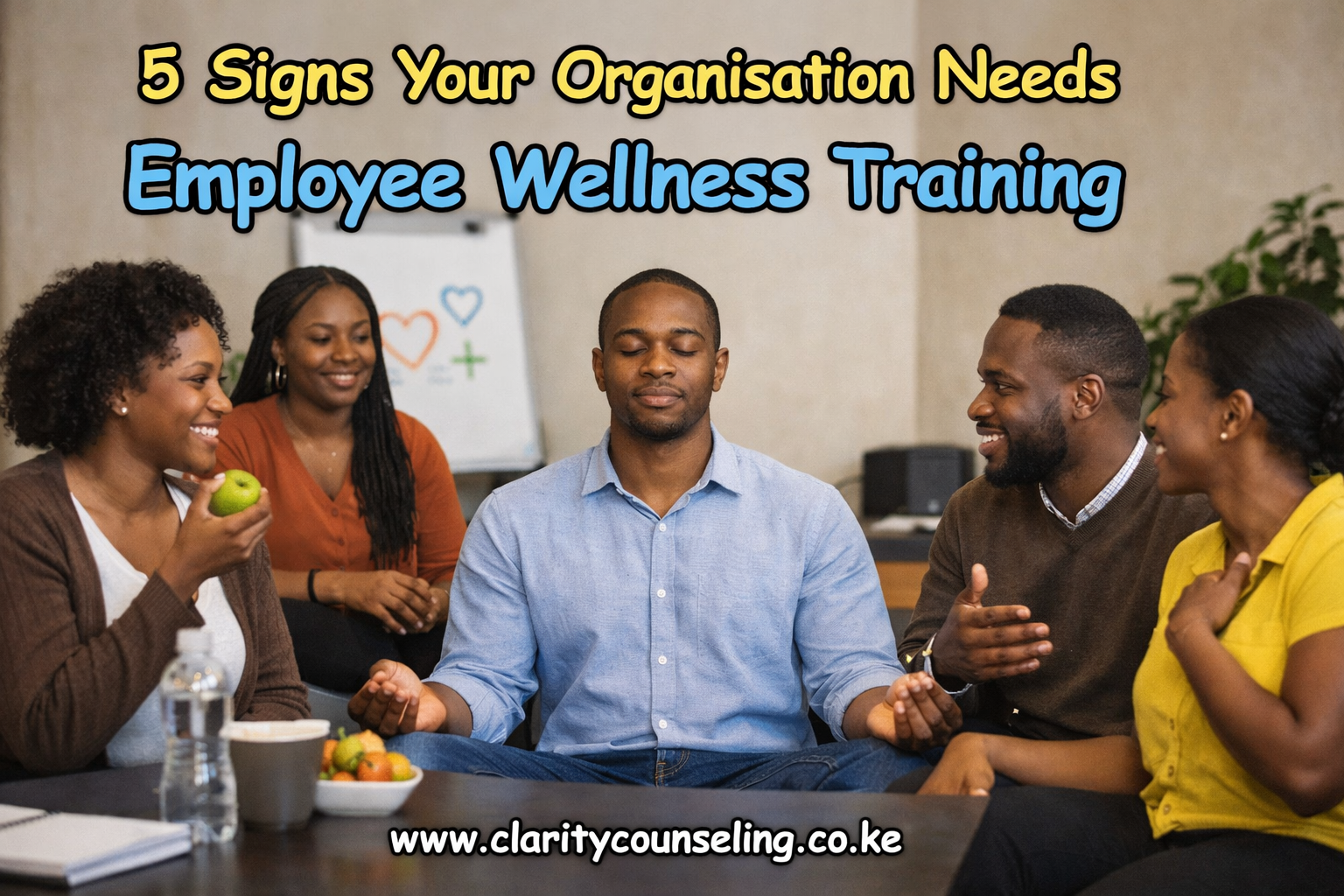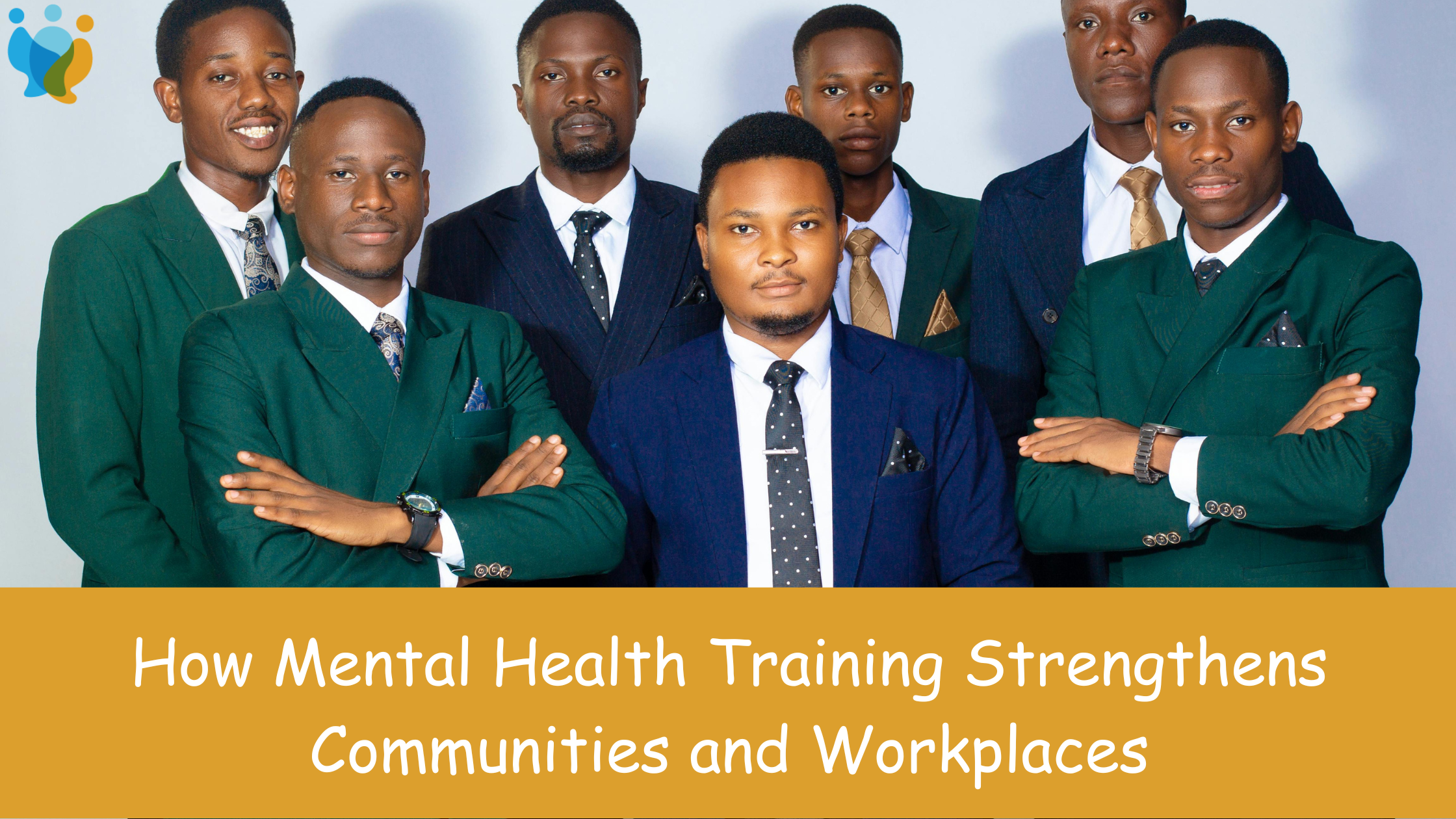How to Enroll in a Counseling Course in Kenya in 9 Steps
Choosing to study counseling is a bold step. It’s about more than just a career, it’s about answering a calling to walk with people in their darkest seasons and help them find light again. But how exactly do you begin? What are the practical steps to enrolling in a counseling course in Kenya? And how do you ensure you’re choosing the right path for your future?
This guide breaks it down step by step, simple, clear, and actionable, so you can move from curiosity to enrollment with confidence.
Step 1: Understand Why You Want to Study Counseling
Before any form gets filled or any fee gets paid, the inner work starts. This is where clarity comes from. Think about the moments that nudged you here, maybe that friend who always calls you after a hard day, or the student who lingered after class because they felt safe around you. Maybe you’ve watched the demand for counseling services in Kenya grow while support systems tried to keep up. Put that reason on paper. It becomes your anchor when life gets busy and your calendar fills up.
The first step isn’t about paperwork or fees. It’s about reflection. Why do you want to become a counselor? Maybe you’ve seen the need for better counseling services in Kenya. Maybe friends and family already turn to you for advice. Or maybe you want a formal career shift into psychology and mental health.
Whatever your reason, naming it matters. Writing it down can help you stay focused through the application process and the study journey that follows.
If the question feels big, try a quick exercise: write down three moments from the last year when you felt drawn to help. Then ask, “What kind of counselor would have helped most here?” The answer points you to the right kind of training, and keeps you aligned when decisions get overwhelming.
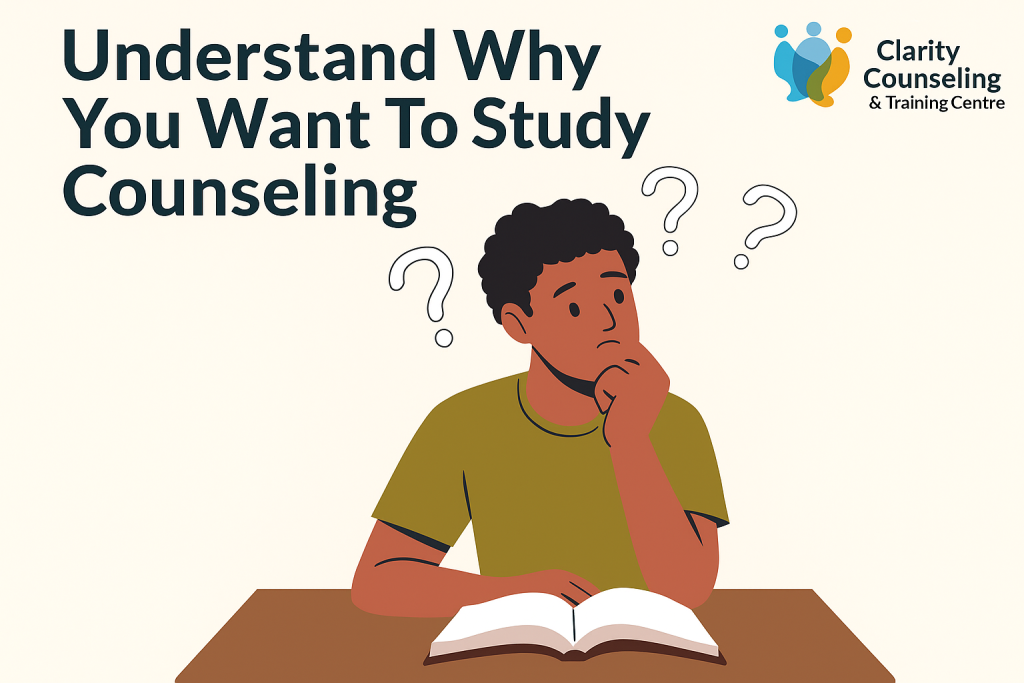
Step 2: Choose the Right Counseling Course
This is where many people stall, too many tabs open, too many options, and a quiet fear of choosing “wrong.” The truth? There isn’t one perfect path. There’s the path that fits your season, your capacity, and your goals. Read the options below as different doors, not different destinies.
In Kenya, there are several levels and types of counseling courses. The right option depends on your goals:
- Certificate in Counseling Psychology – Entry-level. Perfect if you’re new to the field or want to test the waters before pursuing advanced study.
- Diploma in Counseling Psychology – A deeper dive, often required if you want to practice independently.
- Short Courses in Counseling Psychology – Targeted skills, like grief counseling or marriage counseling in Nairobi. Great for professionals in related fields or those wanting to specialize.
When choosing, ask yourself: Do you want a short-term skill upgrade, or are you aiming for a long-term career in counseling?
Here’s a simple way to decide: imagine your life six months from now versus three years from now. If you need quick, usable skills, say, for ministry, teaching, HR, or community work, a short course or certificate gives traction fast.
If you’re leaning into a professional identity, private practice, school counseling, NGO work, the diploma route builds the depth and supervised practice you’ll rely on. Both are valid. Both serve real people. Choose for the season you’re in, not the pressure you feel.
Comparison Table: Counseling Course Options in Kenya
| Course Level | Duration | Who It’s For | Career Outcomes |
| Certificate in Counseling Psychology | 6–12 months | Beginners exploring counseling | Support roles, pathway to Diploma |
| Diploma in Counseling Psychology | 2–3 years | Students seeking a counseling career | Professional counseling roles, private practice |
| Short Courses in Counseling Psychology | Weeks–Months | Professionals seeking specific skills | Specialized practice (e.g., trauma, marriage counseling) |
Use the table as a quick map, then translate it to your life. If evenings are your only free time, a certificate or modular short course can fit neatly. If your dream is a counseling room with your name on the door, the diploma gives structure, supervision, and credibility.
Whichever you choose, block the time on your calendar now. Protect it like a standing appointment, because it is one, with your future clients.
Step 3: Research Accredited Institutions
Think of accreditation as the guardrail that keeps your effort from sliding off the road. It’s not just a badge; it’s what makes your training visible to employers, peers, and professional bodies. People sometimes pick the nearest campus or the lowest fee and only discover later that quality is not guaranteed. Avoid that detour.
Not every course is created equal. Accreditation matters. Enrolling in a recognized institution ensures your certificate or diploma is respected by employers and professional bodies like the Kenya Counselling and Psychological Association (KCPA).
Some students choose the cheapest or nearest option, only to realize later that their certificate isn’t recognized. That’s a setback you can avoid by choosing wisely.
Among Kenya’s options, some institutions focus more on research, others on practice. The strongest training environments combine both academic rigor and real-world exposure to counseling sessions. This is why training at a center that integrates practice with learning can be a game-changer.
Before shortlisting, do three quick checks:
- Look up the institution on KCPA’s listings.
- Scan recent student testimonials for practicum support (not just theory).
- Confirm whether classes are flexible, weekend, evening, or blended, so your life doesn’t have to pause to make progress.
Comparison Table: Top Counseling Training Options in Kenya
| Institution | Courses Offered | Accreditation | Unique Strength |
| Kenya Institute of Professional Counseling | Certificate, Diploma | KCPA recognized | Established name, long history |
| Various Universities (e.g., Daystar, USIU) | Degree programs | Commission for University Education | Academic depth, research focus |
| Clarity Counseling & Training Centre | Certificate, Diploma, Short Courses | KCPA recognized | Hands-on training, practicing therapists as lecturers |
This table isn’t about ranking; it’s about fit. If you want research and a long academic runway, a university shines. If you want hands-on practice with facilitators who actively see clients, a training center that blends classroom and real-world exposure accelerates learning. Ask one final question: “Where will I actually get better at helping people?” Choose the place that answers that with structure, supervision, and access.
Step 4: Check the Entry Requirements
Requirements are there to ensure you can cope with the pace and depth of training. They aren’t gatekeepers to keep you out; they’re signposts to guide you in. If a direct route feels out of reach, a bridging path can still take you exactly where you want to go, just with steadier steps.
Each institution has slightly different requirements. For example:
- Certificate courses often require a KCSE mean grade of D+ or higher.
- Diploma courses may require a C– or a certificate in counseling.
- Short courses usually have no strict academic requirements.
The good news is that entry into the counseling profession in Kenya is designed to be accessible. If the passion is there, there’s always a pathway forward.
If your grades are older or scattered across different schools, don’t panic. Many students piece documents together over time. Start with what you have, request what you need, and keep a simple folder, physical or digital, so nothing slips through the cracks. Progress counts. Perfection can wait.
Step 5: Gather and Submit Your Application Documents
This is where momentum builds. Create a checklist, set a two-week deadline, and start ticking items off. If anything’s missing, say, a transcript, request it early and upload a note to admissions so your application stays active. Your future self will thank you.
Most institutions will ask for:
- Copies of your academic certificates
- National ID or passport
- Passport-sized photos
- Application form (downloaded or collected on campus)
- Application fee receipt
Today, many counseling training centers in Kenya make it possible to complete this process online. That means even if you live outside Nairobi, enrollment is still within reach.
A small tip that saves time: scan documents clearly, name files in plain English (e.g., “ID_Sarah_Kimani.pdf”), and back them up in your email or cloud storage. When the admissions office asks for an update, you’ll respond in minutes, not days. That speed can be the difference between the current intake and the next one.
Step 6: Plan Your Finances and Pay the 1st Semester Deposit
Money conversations can feel heavy, but clarity reduces anxiety. Map the whole cost, not just tuition, registration, practicum travel, supervision, and materials. Then match that with a payment plan that fits your rhythm. It’s not just about affordability; it’s about sustainability for two terms, four terms, six semesters.
Counseling courses vary in cost depending on the level and institution. While universities may charge higher fees for degree programs, diploma and certificate courses are more affordable.
Here’s a rough estimate:
| Course | Estimated Fee Range (Kenya) |
| Certificate | KSh 50,000 – 80,000 |
| Diploma | KSh 120,000 – 250,000 |
| Short Courses | KSh 10,000 – 30,000 |
Finances should never be the barrier that stops someone from following their calling. Many institutions, including Clarity Counseling, provide flexible payment plans to ease the burden.
If budgeting feels daunting, break it down monthly and set up an automated transfer. Add a small buffer for extras. And ask admissions for a fee breakdown in writing. Clear numbers calm nerves, and let you focus on learning, not scrambling.
Step 7: Prepare for Interviews or Entrance Assessments
Think of this as a conversation about readiness rather than a pass/fail moment. Schools want to know you can hold space for others and care for yourself too. Bring real stories, not perfect answers. Honesty travels further in this field than performance ever will.
Some institutions may require an interview or entrance assessment. It’s not about intimidation, it’s about ensuring counseling is the right fit.
Expect questions like:
- Why do you want to be a counselor?
- How do you handle stressful situations?
- Are you ready for the emotional demands of this profession?
These interviews are often conversations, not tests. They’re a chance to share your story and show your readiness for the path you’re choosing.
A simple way to prepare: jot down a time you supported someone, a boundary you set to protect your wellbeing, and a growth area you’re actively working on. Those three examples show empathy, resilience, and teachability, the core ingredients of a strong counselor-in-training.
Step 8: Get Ready for Orientation
Orientation flips the switch from “thinking about it” to “living it.” You’ll meet faculty, scan the curriculum, and spot the classmates who’ll become study partners and, later, colleagues. Treat it as a soft launch for your new identity.
Once accepted, orientation is the bridge between dreaming of becoming a counselor and actually stepping into the role. It’s a chance to meet faculty, understand the curriculum, and connect with fellow students who share the same passion.
Many students describe this as the moment their future starts to feel real.
Make it practical: bring a notebook, ask about practicum timelines, and schedule your first study blocks that same week. The sooner your life wraps around your course, the smoother the semesters flow.
Step 9: Begin Your Journey
The first weeks are formative: ethics, basic skills, reflective practice, peer roleplays. You’ll stumble a little, learn a lot, and notice your listening change, slower, deeper, kinder. That shift is the quiet proof you’re in the right place.
Enrollment is not the end, it’s the beginning. From the first day in class, you’ll learn about human behavior, mental health, therapy techniques, and ethical practice. More importantly, you’ll begin to grow in self-awareness, a vital part of becoming a counselor.
Students often say they came to learn how to help others but found themselves healing too. That dual transformation is what makes counseling training so powerful.
Lean into supervision, ask questions early, and track small wins, your first effective reflection, your first de-escalated moment, your first client who breathes easier because you were there. Those are milestones. Celebrate them.
Enroll with Clarity Counseling & Training Centre Now!
You’ve got the map. The steps are clear. Now it’s about movement, one action at a time. Start with your “why.” Choose a course that fits your season. Verify accreditation. Gather documents. Set a budget you can keep. Show up to the interview as yourself. And step into orientation ready to grow.
Enrolling in a counseling course in Kenya doesn’t have to feel overwhelming. It’s about taking one step at a time: reflecting on your motivation, choosing the right course, researching accredited institutions, preparing your documents, and planning your finances. Each step brings you closer to becoming the counselor you’re meant to be.
And for those seeking a program that blends academic rigor with practical, hands-on training, Clarity Counseling & Training Centre offers a pathway trusted by many aspiring counselors across Kenya.
Your journey doesn’t start when you graduate, it starts the moment you decide to enroll.
Ready to Take the Next Step?
Enrolling in a counseling course isn’t just about signing up for classes—it’s about beginning a journey that could reshape how you understand yourself and how you impact the lives of others. You’ve seen what’s possible. You’ve walked through the steps. The decision now is yours.
If this guide has helped you see a clearer path forward, consider making today the day you begin. Counseling training in Kenya is accessible, practical, and deeply rewarding. The opportunity to grow is already within reach—you only need to choose it.
[Explore available counseling courses and begin your enrollment today →]

